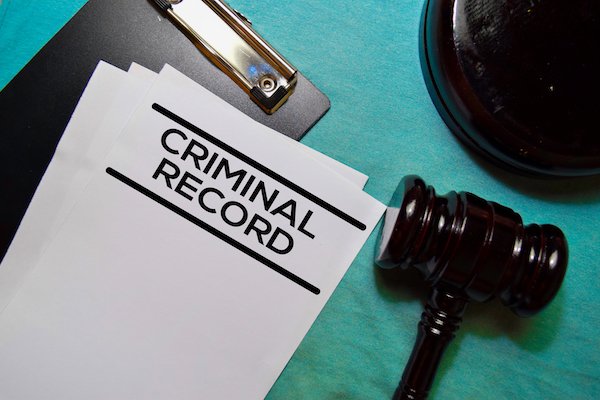Getting arrested for DUI does not mean you will be convicted. Police misconduct, defective breathalyzers and crime lab mistakes may be enough to get your charges lessened or dismissed. Visit our page on Colorado DUI Laws to learn more.
24/7 Help:
(303) 222-0330
Please note: Our firm only handles criminal and DUI cases, and only in California. We do not handle any of the following cases:
- civil matters
- CCWs or gun right restoration
- labor
- family law
- immigration
- landlord/tenant
- harassment
- restraining orders
And we do not handle any cases outside of California.
Call Us NowColorado Criminal Records – 5 key things to know
Posted on

1. Most criminal history records get sealed automatically
Prior to 2023, you needed to file a petition to seal your Colorado arrest records and criminal conviction records. Now it happens automatically as long as you pick up no new criminal cases.
The waiting period before your record gets automatically sealed depends on the case.
|
Colorado criminal record |
When automatic sealing occurs |
| Colorado arrests that result in no charges (2022 to the present) | Within 1 year and 60 days of the arrest |
| Dismissal or acquittal | As soon as the case is dismissed |
| Diversion (before charges get filed) | As soon as you complete the diversion program |
| Civil infractions | 4 years after the case closes |
| Petty offense convictions | 7 years after the case closes |
| Non-violent misdemeanor convictions | 7 years after the case closes |
| Non-violent felony convictions | 10 years after the case closes |
Once your criminal record gets sealed, you can lawfully say in job interviews or under oath that you never had a criminal record. (Though for certain jobs, you may still have to disclose your sealed records.)1
2. It is still quicker to petition to seal your records
Colorado will not automatically seal your criminal records until years after you become eligible for a record seal. Therefore, it is still in your interest to formally petition for a record seal as soon as you qualify.
The waiting period before you can petition for a record seal depends on your case.
|
Colorado criminal record |
When eligibility for a record seal occurs |
| Arrest records that result in no conviction | Immediately |
| Civil infraction
Petty offense conviction Drug petty offense conviction |
1 year after the case closes |
| Class 2 misdemeanor conviction
Class 3 misdemeanor conviction Drug misdemeanor conviction Level 4 drug felony conviction pursuant to CRS 18-18-403.5 Multiple petty offense convictions Multiple petty drug offense convictions |
2 years after the case closes |
| Class 1 misdemeanor conviction
Class 4 felony conviction Class 5 felony conviction Class 6 felony conviction Level 3 drug felony conviction Level 4 drug felony conviction (not including those pursuant to CRS 18-18-403.5) |
3 years after the case closes |
| Level 2 drug felony conviction
Multiple misdemeanor convictions Multiple misdemeanor drug offense convictions Multiple level 4 drug felony convictions |
5 years after the case closes |
| Multiple felony convictions
Multiple drug felony convictions |
10 years after the case closes |
The process of sealing your criminal records is paperwork-heavy and requires detailed information, and one mistake can put you back to square one. Therefore, you are advised to retain an experienced Denver criminal defense attorney to handle everything for you.2
3. Not all convictions can be sealed
Convictions for the following crimes can not be sealed in the state of Colorado:
- Class 1 felonies
- Class 2 felonies
- Class 3 felonies
- Level 1 drug felonies
- Sex offenses
- DUIs
- Domestic violence convictions (such as domestic violence harassment)
- Class 1 misdemeanor traffic crimes
- Class 2 misdemeanor traffic crimes
- Class A traffic infractions
- Class B traffic infractions
- Offenses involving a commercial driver’s license5
However, state law allows district courts to seal normally unsealable misdemeanor convictions if you can show the court by clear and convincing evidence that you have a significant and substantial need for a record seal, sufficient time has passed, and it would not threaten public safety.3
4. Sealed criminal records should not show up on background checks
Once all the relevant agencies have complied with the court’s order to seal your record, your criminal history should not show up on standard background record searches.
In fact, Colorado law requires consumer reporting agencies to exclude all sealed and expunged records from background checks unless the person or entity requesting the report can demonstrate they are lawfully required to consider the sealed/expunged records.
However, sealed records sometimes do show up on FBI background checks, which you must undergo to apply to work for
- the federal government,
- law enforcement agencies,
- schools, and
- certain other entities.
The FBI does not always comply with “orders to seal records” because it is not under the jurisdiction of Colorado courts.
Even if your criminal records are not sealed, Colorado’s Ban the Box law affords job applicants certain protections. With some exceptions, private employers are forbidden from:
- Requiring you to disclose your criminal history on an initial job application;
- Asking about your criminal history on an initial job application; and
- Stating in an advertisement or application that people with criminal histories may not apply.4
5. Record seals and expungements are technically different in Colorado
Sealing makes criminal justice records invisible, but they are still there. In contrast, expunging physically destroys the record.
In Colorado, most criminal records are sealable but not expungeable. Only the following records can be expunged:
- juvenile records,
- underage drinking and driving (UDD) records, and
- arrest records from when police wrongly arrested you because of mistaken identity.
Like record sealing, the expungement process is confusing and technical, so consider retaining legal counsel to manage the case for you.5

In Colorado, private employers may not ask about your criminal record on the initial job application.
Articles on Related FAQs
- How do criminal background checks work in Colorado?
- What’s the difference between “sealing” and “expunging” criminal records in Colorado?
- How much does it cost to seal a record in Colorado?
Additional Resources
- Colorado Bureau of Investigation (cbi.colorado.gov)
- Colorado Internet Criminal History Check System (ICHC)
- Colorado Sex Offender Registry public access
- County Sheriff’s Offices in Colorado
- Colorado Court Docket Search
Legal References
About the Author

Michael Becker
Michael Becker has over a quarter-century's worth of experience as an attorney and more than 100 trials under his belt. He is a sought-after legal commentator and is licensed to practice law in Colorado, Nevada, California, and Florida.
